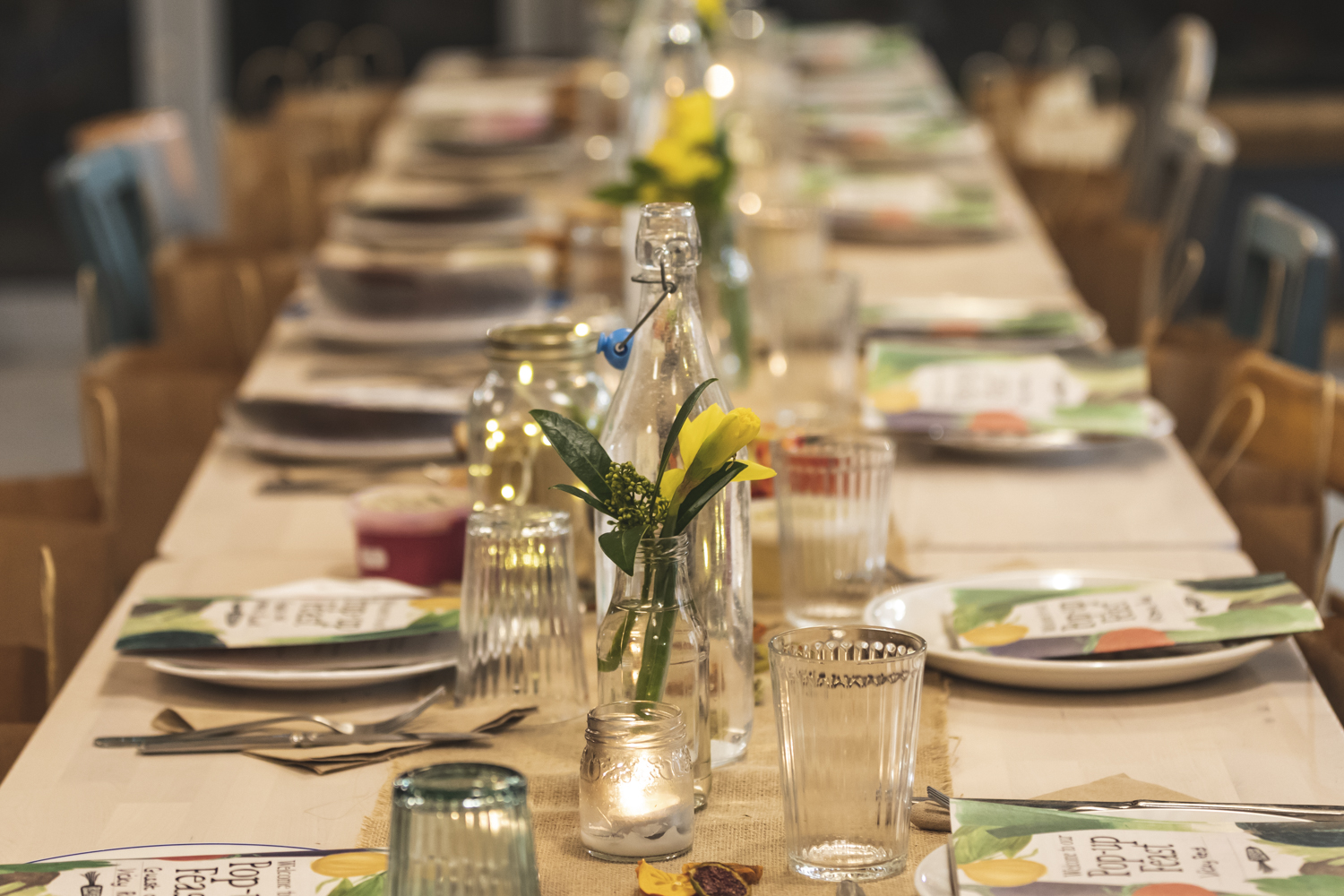As 2020 ends, many of us will be relieved. We allow ourselves to hope that we might once again enjoy eating with friends, with masks the preserve of medics once more, and alcohol served in a glass on your table rather than in a pump bottle by the door.
Covid-19 has fomented a crisis in mental wellbeing according to the Red Cross, with the virus negatively impacting the mental health of one in two people across seven countries surveyed. More than two thirds of UK adults report feeling worried about the effect of Covid-19 on their lives.
Just as news of a vaccine hit the headlines, the UN stated that the world stands on the brink of a food crisis worse than any seen for at least 50 years, adding that better social protections for poor people are urgently needed, as the recession places basic foods beyond reach. How do we react other than to offer emergency food parcels?
Following the horrors of the First World War and the 1918 flu pandemic, the UK government set up National Kitchens. Povert-related malnourishment has negative effects on health and wellbeing that can be lifelong, so the kitchens served good quality meals for whoever wanted them at a subsidised rate. At the height of their popularity, 363 kitchens were open for business, and civil servants at the Ministry of Food eagerly discussed whether national kitchens might become a “permanent national institution”.

During the Second World War, ‘British Restaurants’ were set up by the Ministry of Food and run by local government or voluntary agencies on a non-profit basis. Nutrition was a priority, with government concerned about vitamin C levels during this period of food rationing.
Restaurants popped up in repurposed buildings or temporary structures, some grew their own produce, some were decorated with artwork. By 1943, there were 2,160 ‘British Restaurants’ across the UK, serving around 600,000 meals daily. They brought dining out to the masses. Despite their popularity, they were officially disbanded in 1947.
Current research suggests that those who eat socially are more likely to feel better about themselves and have a wider network capable of providing some social and emotional support. Pre-pandemic, Food in Community’s popular pay ‘what you feel’ cafes were serving nutritious and imaginative meals at an affordable price, made from surplus organic food.
Musicians performed, volunteers served and people from all walks of life sat together at flower decked tables with others they hadn’t met before, making conversation over colourful plates of allotment pie.
What if there was a pay what you feel restaurant bringing sociability and good food to every district, offering paid work opportunities to laid off chefs, front of house staff and trainees? Colourful places to eat affordably, offering purpose and employment, using the sharing of food as the means to bolster the bonds between us.












PRSC in Bristol already has something like this https://www.bbc.co.uk/news/uk-england-bristol-53488698 & I’m aware of similar ideas being worked on in Nottingham & elsewhere.
: https://vimeo.com/157198677
Social Eating vs Social Isolation
Numerous studies now confirm that social isolation is as much a health issue as nutrition or smoking. In today’s society, it is easy for anyone to become socially isolated and feel the effects of loneliness, whether due to age, injury, mental health issues, unemployment, or any of many reasons. In Nottingham, as elsewhere in Britain, the Social …
vimeo.com
https://www.socialeatingnetwork.org/
https://www.solidarityandcare.org/stories/essays/eating-together-apart-reflections-on-the-community-foodscape-in-nottingham-during-the-pandemic
http://blogs.nottingham.ac.uk/futurefood/2020/01/30/researching-social-eating/
https://blogs.coventry.ac.uk/researchblog/making-mealtimes-matter-commensality-collaboration-and-building-relationships-beyond-our-disciplines/
Thanks for those links Richard in Bristol. I’m Beeston based and wasn’t aware of this stuff going on in Nottingham.